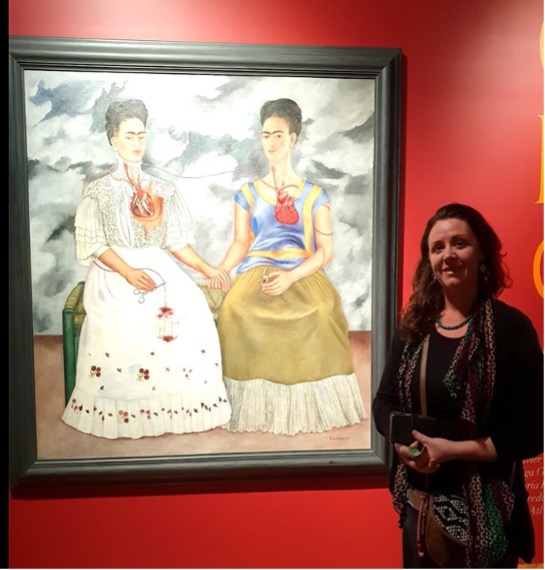This post is part of our Research Initiation Scheme for 2023-2024.
What has your academic journey looked like so far? What did you study during your undergraduate and previous postgraduate experiences?
I undertook my PhD in Spanish as a mature student. For my undergraduate degree I did Languages and Latin American Studies [at the University of Essex]. After university I didn’t go straight on to postgraduate study. I travelled after my degree and I lived abroad for several years, teaching in a number of countries (South Korea, New Zealand). In 2016, when I was made redundant from the language program I was teaching on, I applied for a Master’s in Modern Languages at Queen’s. I then had a year between finishing my master’s and applying for the PhD. I enjoyed the return to studying and university life. So, I put a proposal together, applied for the PhD, and got accepted, which I hadn’t really expected! I just finished my PhD in November [2023] – there were some interruptions to my studies, especially because of the pandemic, so my journey was a bit more protracted.
Would you be able to give a brief explanation of your PhD research?
I will try! My broad area is Mexican Studies; in my thesis, “Frida Kahlo and Astrid Hadad: Performing Woman and Nation in 20th Century Mexico”, I look at artist Frida Kahlo, and cabaret político [political cabaret] performer Astrid Hadad. I examine how they perform, resist and contest the hegemonic constructs of Mexican womanhood. So, I look at Kahlo’s self-portraits against the background of cultural nationalism in post-revolutionary Mexico (the period following the Mexican revolution of 1910-1920). I contextualise her work against the art history and discourse of the period. In relation to Astrid Hadad, I examine her work against the backdrop of NAFTA, the North American Free Trade Agreement, which was signed towards the end of the 20th century. I look at how she uses her cabaret performances as political commentary and how she performs womanhood in that context.

Why did you decide to choose this topic?
My PhD really grew from my Master’s dissertation, where I looked at Kahlo. I had studied art and drama at school as well as practising both in an extra-curricular capacity, and have always been interested in performance. So, my PhD was sort of a combination of those interests with my love for Mexican Studies. Frida Kahlo is a global icon, and one of the most written about artists in the world, so she can be hard to write about. But I hit on this idea that she performs her identity in various ways, and when I got that in my head, I couldn’t let it go. I couldn’t believe that no one else had written about how performative Kahlo’s self-portraits are, and I felt that somebody should be writing about it. So, I ended up being that person, and trying to fill that gap in the scholarship.
What did you find to be the most interesting part of your PhD project?
I was very fortunate to be able to do very interesting and exciting things – I got to go on a research trip to Mexico. The second performer that I looked at [Astrid Hadad] is still performing, so I got to interview her in her home in Mexico City, which was really great, and I was able to see her perform in France a couple of times as well.
Do you have any advice for anyone considering postgraduate research?
I would say absolutely go for it! If you have an original idea, research the area thoroughly for your proposal, but be confident – going into research can be a bit intimidating. Also, I would say if you’ve been in university for a long time, take your time! Don’t rush into it. But I would thoroughly recommend it. I’ve had a brilliant experience with Queen’s, I had wonderful supervisors in Dr Ricki O’Rawe and Professor Sarah Bowskill, as well as support from people in the department and everyone working in the postgraduate research office.
Interview by Cara Reid, final-year undergraduate in English and Spanish.
Editor’s note:
Claire Whyte’s PhD research was funded by the Department for the Economy (DfE).